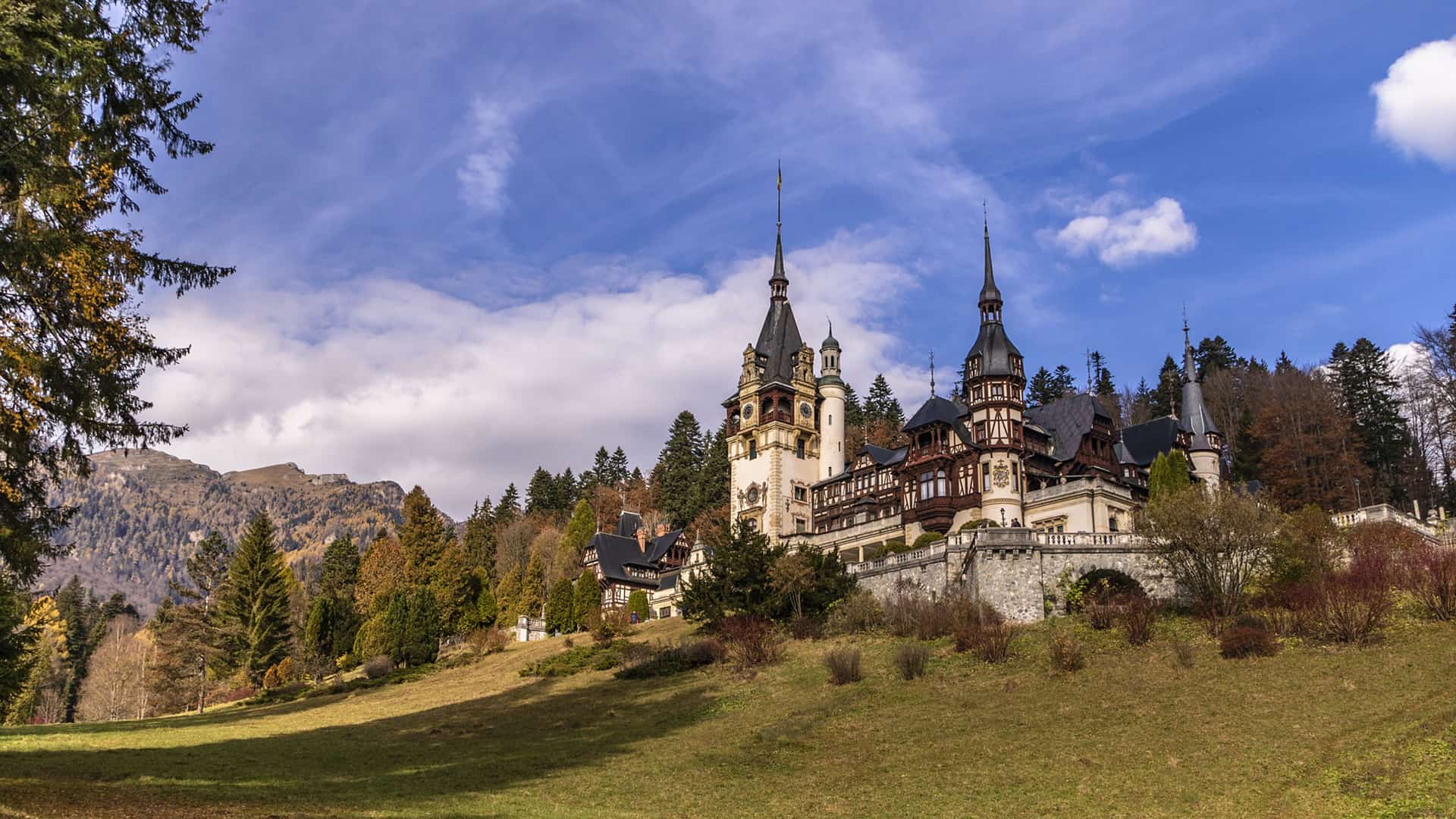- Population: 19,640,000
- Currency: Romanian Leu (RON)
- University Students: 408,000
- International Students: 25,000 (6%)
- English-taught Programs: 280
Romania is in the southeast of Central Europe, surrounded by Hungary, Serbia, Bulgaria, Ukraine and the Republic of Moldova. The country is home to 7 UNESCO World Heritage sites and a fantastic country to travel, from beaches and resorts to mountains and nature. Romania is also considered one of the safest countries in Europe. The country enjoys an average 210 days of sunshine per year.
Higher education has a long tradition in Romania, with the University of Iasi established in 1860 and the University of Bucharest in 1864. In the last decade Romania has seen a stark decrease in the number of students attending University; Back in 2009 around 907,000 students enrolled in Universities and most recent figures show the number has dropped to 408,000.
Universities in Romania
There are over 100 Universities in Romania that offer a total of over 1,000 study programs at Bachelor, Master and Doctorate level.
- Transilvania University of Brasov
- University of Bucharest
- Bucharest Academy of Economic Studies
- Babes-Bolyai University
- Technical University of Cluj-Napoca
- Alexandru Ioan Cuza University
- Gheorghe Asachi Technical University of Iași
Business Schools in Romania
- Bucharest Business School
- ASEBUSS Romanian-American Business School
Study in English in Romania
In Romania there are currently 280 programs taught in English at Universities across the country. There are also programs taught in French, German as well as Hungarian.
Tuition Fees in Romania
Tuition fees vary by program and institution but expect to pay between 14,000 RON (3,000 EUR) to 30,000 RON (6,300 EUR) per academic year. Some programs may even be cheaper and others more expensive, depending on the study domain or your citizenship.
Scholarships to Study in Romania
Getting a scholarship to study in Romania is accessible to international students. There are scholarships based on bilateral co-operation agreements as well as scholarships linked to the government.
Some of these scholarships include the Benjamin A. Gilman International Scholarships and the David L. Boren Scholarship. European students can take advantage of Erasmus+ programme.
Costs of Living in Romania
With 1,400 RON (300 EUR) to 3,300 RON (700 EUR) per month you can be safe to cover your living costs in Romania.
Internships & Company Placements in Romania
Internships are popular in Romania and eligibility criteria readily available on Internship.gov.ro and Internshipul.ro.
Working in Romania
Working in Romania while studying is permitted without the need for a work permit. Students who have a residence permit can work up to four hours per day.
If you are looking to work more than four hours per day, then you will be required to apply for a work permit. Details on procedure to apply for a work permit in Romania are available on the General Inspectorate for Immigration website.
Applying for a Student Visa to Study in Romania
Whether you will require a student visa or not to enter Romania, will depend on your citizenship. EU nationals, of course, as well as those from Japan, South Korea, Malaysia, Australia, New Zealand, Singapore, Hong Kong, Serbia, the UAE, Moldavia, Norway, Switzerland or the USA or Canada are exempt.
Other national will be required to apply for a student visa to study in Romania. The typical process takes around two months and requires international students to hold a valid passport, be accepted at a higher education institution and have a minimum of 2,000 Euros to provide proof of funds for living.
Further details on requirements and application procedures can be found on the official government website Study in Romania.
